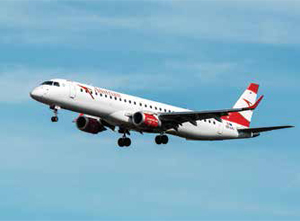Corporate Citizen Claps for the ministry of Civil Aviation and its amended “passenger charter” that lays out the rights of domestic air travellers

A much-needed change; what with more frequent technical snags causing flight delays and frequent re-schedule of flight itineraries in ‘real time’ faced by passengers. The new charter comes as a breather as passengers now have “the right to receive a refund of statutory taxes, user development and passenger services fees levied by an airline” – in the event that any passenger has to cancel his flight ticket. However, for an international flight, the right to refund will be subject to the airline’s internal policy. It is equally important to understand the amendments in the new charter on charges incurred by travellers on cancellation and rescheduling of air travel, among other changes. A catch in the amendment is that the new compensation structure is applicable only if it is found that the flight delay or cancellation was caused by the airline concerned. It states that “If a flight is expected to be delayed by more than four hours, the airline would have to arrange for a free meal and refreshments, and if a flight is delayed for more than six hours, a passenger has a right to receive a full refund of the ticket.” For a delay over six hours, it becomes mandatory for the airline to inform passengers at least 24 hours in advance of the original departure time. Also, “The airlines must inform about flight cancellation at least two weeks before the scheduled time of departure and arrange alternate flights or refund. Moreover, if a passenger misses a connecting flight on the same ticket, the passenger should then be given a compensation of up to Rs.10,000 subject to conditions.” In case of flight getting overbooked, the airline must provide an alternate flight, scheduled to depart within an hour of the original flight’s departure time. If the airline is unable to do so, it would have to pay compensation. The charter also sets forth that in case a passenger is injured or encounters death as an absolute fault of the airline, the airline is then liable to pay compensation of Rs.20 lakh. Period!
Corporate Citizen Slaps the ‘credibility’ of structural inspections that fail to ensure citizen’s safety despite the ‘checked’ status; perhaps done for mandatory closures and documentation

The recent collapse of the Mumbai (Chatrapati Shivaji Maharaj) CST foot overbridge (FoB), is the third FoB related incident in Mumbai in the past 2 years and warrants some strong questioning and concrete solutions. The CST FoB also called the Himalaya Bridge connecting Mumbai’s CST railway station - Platform 1 North end with BT Lane near the Times of India building, had nearly 60% of its structure caved in along with the steel cross beams; killing 6 and injuring some 35 odd commuters. It had apparently been declared ‘fit’ by a consultancy firm that was hired by the civic body - Brihanmumbai Municipal Corporation (BMC) for its audit. However, officials of the NDRF (National Disaster Response Force) that reached the site for rescue said that “The bridge appears to have had serious structural issues since the cross beams collapsed along with the concrete. In a slab collapse, the frame would have remained intact.” The audit had proposed minor repairs to the FoB, which had only been tendered recently. The structural audit of the CST bridge was done in 2018 and perhaps attempted to remedy the ill-fated 2017 Elphinstone Road stampede. The latest tragedy has once again opened up a blame game between the BMC and the Indian Railways. In the Elphinstone Road incident, railway officials had blamed the incessant rains for causing the deadly stampede despite multiple warnings citing safety concerns which have now found some closure as the Mumbai Police have reportedly classified it as an accident! “The stampede (Elphinstone Road FoB) was caused as a result of rumours being spread among trapped passengers on the station staircase…the incident will be closed as an Accidental Death Report,” said Mumbai Police officials. As probes on the latest FoB mishap continues, 11 more enlisted ‘dangerous’ bridges in Mumbai remain; yet to be demolished. Will someone just wake up before the next tragedy?
by Sangeeta Ghosh Dastidar